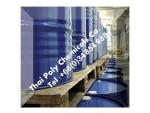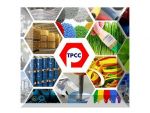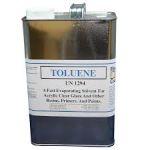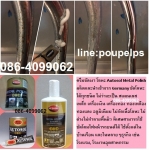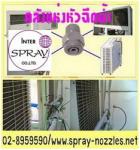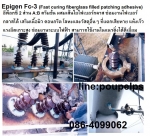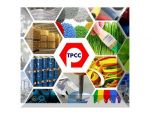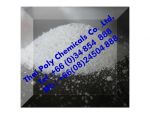โพรพิลีนไกลคอล (พีจี) หรือ โมโนโพรพิลีนไกลคอล (เอ็มพีจี), Propylene glycol (PG) or monopropylene glycol (MPG) |
฿1 |
|
ชื่อผู้ประกาศ : ไทยโพลีเคมิคอล เบอร์โทรศัพท์ : 034854888, 034496284 โทรศัพท์มือถือ : 0800160016 ที่อยู่ : 36/5 ม.9 ต.นาดี อ.เมืองสมุทรสาคร จ.สมุทรสาคร 74000 ร้าน Thai Poly Chemicals |
บริษัทฯ นำเข้าและจำหน่าย โพรพิลีนไกลคอล
(พีจี) หรือ โมโนโพรพิลีนไกลคอล (เอ็มพีจี), Propylene
glycol (PG) or monopropylene glycol (MPG) ขนาดบรรจุ 215
kg/drum
สอบถามข้อมูลเพิ่มเติมได้ที่
ฝ่ายขาย
บริษัท ไทยโพลีเคมิคอล จำกัด เอทิลีนไกลคอล, เอทธิลีนไกลคอล, โมโนเอทิลีนไกลคอล, โมโนเอทธิลีนไกลคอล, โมโนไกลคอล,
โทรศัพท์: 034-854888 , 034-496284
มือถือ : 082-4504888 , 08-00160016
โทรสาร: 034-854899 , 034-496285
อีเมลล์1 : thaipolychemicals@hotmail.com
อีเมลล์2 : info@thaipolychemicals.com
โพรพิลีนไกลคอล, พีจี, Propylene Glycol,
PG
โมโนโพรพิลีนไกลคอล, เอ็มพีจี, Monopropylene
Glycol, MPG
เป็นตัวทำละลาย (Solvent) สามารถละลายในน้ำ
และแอลกอฮอล์ ใช้เป็นสารละลายในกลิ่นผสมอาหาร (Flavor) และหัวเชื้อกลิ่นต่างๆ
หรือ สารเพิ่มอากาศในแป้งที่นวดให้เข้ากันของขนมปัง ใช้เป็นสารเพิ่ม ความชุ่มชื้น
1. ใช้เป็นตัวทำละลาย
หรือ เจือจางน้ำหอม ในผลิตภัณฑ์เครื่องสำอาง หรือใช้เป็นตัวทำละลาย
หัวกลิ่นน้ำหอมเข้มข้น และในอุตสาหกรรมการผลิตอาหาร2. ใช้เป็นตัวทำละลายวิตามิน
ชนิดที่ละลายในน้ำ3. ใช้เป็นสารกันเสียในเครื่องสำอางที่อยู่ในรูปของครีม
และอิมัลชั่น4. ใช้เป็นตัวทำละลายสำหรับอุตสาหกรรมผลิตน้ำยาบ้วนปาก
ยาสีฟัน ลิปติก ครีมทาผิว แชมพู5. อุตสาหกรรมต่างๆทั่วไป
โพรไพลีน ไกลคอล, พีจี, Monopropylene
glycol, MPG, โมโนโพรพิลลีน ไกลคอล, มีเกรดอุตสาหกรรมและ
USP grade ใช้กับพวกอาหารได้ Propylene Glycol สารเคมีใช้ป้องกันการจับตัวเป็นของแข็ง ในภาคอุตสาหกรรมนำไปใช้ในการทำละลาย
อาทิ สีและพลาสติก แต่นำมาใช้กับเครื่องสำอางในกลุ่มมอยส์เจอไรเซอร์
Propylene glycol is a
synthetic liquid substance that absorbs water. Propylene glycol is also used to make polyester compounds, and as a base for deicing solutions. Propylene glycol is used by the chemical, food, and pharmaceutical industries as an antifreeze when leakage might lead to contact with food. The Food and Drug Administration (FDA) has classified propylene glycol as an additive that is ?generally recognized as safe? for use in food. It is used to absorb extra water and maintain moisture in certain medicines, cosmetics, or food products. It is a solvent for food colors and flavors, and in the paint and plastics industries. Propylene glycol is also used to create artificial smoke or fog used in fire-fighting training and in theatrical productions. Other names for propylene glycol are 1,2-dihydroxypropane, 1,2-propanediol, methyl glycol, and trimethyl glycol. Propylene glycol is clear, colorless, slightly syrupy liquid at room temperature. It may exist in air in the vapor form, although propylene glycol must be heated or briskly shaken to produce a vapor. Propylene glycol is
Propylene glycol, also called 1,2-propanediol or propane-1,2-diol, is an
organic compound (a diol or double alcohol) with formula C3H8O2. It is a colorless, nearly odorless,
clear, viscous liquid with a faintly sweet taste, hygroscopic and miscible with
produced is used as chemical feedstock for the production of unsaturated
polyester resins. In this regard, propylene glycol reacts with a mixture of
unsaturated maleic anhydride and isophthalic acid to give a copolymer. This
partially unsaturated polymer undergoes further crosslinking to yield thermoset
plastics. Related to this application, propylene glycol reacts with propylene
oxide to give oligomers and polymers that are used to produce polyurethanes.
Propylene glycol is considered generally recognized as safe (GRAS) by the U.S.
Food and Drug Administration, and it is used as an humectant (E1520),solvent, and preservative in food and for tobacco products, as well as being
one of the major ingredients of the liquid used in electronic cigarettes. It is
also used in pharmaceutical and personal care products. Propylene glycol is a
solvent in many pharmaceuticals, including oral, injectable and topical
formulations, such as for diazepam and lorazepam that are insoluble in water,
use propylene glycol as a solvent in their clinical, injectable forms. Like
ethylene glycol, propylene glycol is able to lower the freezing point of water,
and so it is used as aircraft de-icing fluid. Water-propylene glycol mixtures
dyed pink to indicate the mixture is relatively nontoxic are sold under the
name of RV or marine antifreeze. It is also used to winterize a vacant
structure.[9] The eutectic composition/temperature is 60:40 propylene glycol:water/-60?C.[10][11] The -50?F/-45?C commercial product is, however, water rich; a typical formulation is 40:60. Propylene glycol is a minor ingredient in the oildispersant Corexit, used in great quantities during the Deepwater Horizon oil
spill.Propylene Glycol (PG) USP/EP is a
pharmaceutical grade of Monopropylene Glycols (PG or MPG) with a specified
purity greater than 99.8%.PG USP/EP is tested for compliance
with specifications of:? United
States Pharmacopeia (USP)? European
Pharmacopoeia (EP)? Japanese
Pharmacopoeia (JP)? Food
Chemical Codex (FCC)It also complies with:
? Brazilian
Pharmacopoeia (FB)? other
pharmaceutical, cosmetic and food regulations in the global markets where it is
soldIt is listed by the Personal Care
Products Council?? as an approved ingredient in cosmetics, and its use is reviewed by the Cosmetic Ingredient Review (CIR). PG USP/EP is Kosher and
PG USP/EP is an important
ingredient for a multitude of uses, including:? Solvent
for aromatics in the flavor-concentrate industry? Wetting
agent for natural gums? Ingredient
in the compounding of citrus and other emulsified flavors? Solvent
in elixirs and pharmaceutical preparations? Solvent
and coupling agent in the formulation of sun screen, lotion, shampoos, shaving
creams and other similar products? Emulsifier
in cosmetic and pharmaceutical creams? Ingredient
for low-temperature heat-transfer fluids involving indirect food contact, such
as brewing and dairy uses, as well as refrigerated grocery display cases? Very
effective humectant, preservative and stabilizer in semi-moist pet food (with
the exception of cat food), bakery goods, food flavorings and salad dressingsApplications
Heat Transfer Fluids
Fragrance, Cosmetics and Personal
CareFood and Flavorings
Pet Food/Animal Feed
Pharmaceutical
Other Applications
Heat Transfer Fluids, with a
suitable inhibitor package, makes an excellent choice for use as a heat transfer fluid in applications where contact with potable water, food or beverages might occur. Its low toxicity, low freezing point and high boiling
Fragrance, Cosmetics and Personal Care
? Solvents,
carriers, emollients, dispersants, coupling agents and co-emulsifiers, emulsion
stabilizers or viscosity modifiers? Humectants
due to their hygroscopic nature and ability to attract and hold water? Preservatives
due to inherent antimicrobial activity against a wide range of bacterial and
fungal speciespropylene glycols are commonly
used in many types of cosmetic formulations such as:? Skin
care (creams, moisturizers, cleansers, lotions, sun care products)? Deodorants
and antiperspirants (roll-on, stick and gel deodorants)? Hair
care (shampoos, conditioners, wave sets, styling gels and coloring products)? Shaving
products (creams, foams, gels, and after-shave lotions)? Bath
and shower products? Perfumes
and colognes? Baby
care products (baby wipes)? Hand
cleansing and disinfecting gels? Color
cosmetics (blushes, eyeliner, lipsticks, eye shadow)? Dental
care (mouth washes and toothpastes)PG USP/EP can be used in direct
food applications as:? Humectant
and stabilizer (in prepared fruits, vegetables and bakery goods)? Solvent
in flavor solutions and extractions (and in food additives, such as colors,
antioxidants, enzymes and emulsifiers)? Plasticizer
and softening agent for items such as cork seals? Flavor
extraction solvent and processing aid in the isolation of natural flavoring
materials (extracting vanilla from vanilla beans, for example)Propylene Glycol It also has the following indirect food application uses:
? Heat
transfer fluids for food and beverage chilling and freezing applications? Solvent
for printing inks used in food packaging? Equipment
cleaner, to remove contamination from food processing equipmenthas various beneficial uses including:
? Solvent
? Stabilizer
? Preservative
? Energy
source? Humectant
for moist feeds? Dust
control agent for dry feed ingredients? Wetting
agent for molasses? Lowers
freezing temperature of feed? Preventative
for ketosisPropylene Glycol offers excellent versatility and functionality in pharmaceutical applications:
? Solvent
and extractant for a wide range of active ingredients, such as corticosteroids,
phenol derivatives, barbiturates, vitamins A and D, most alkaloids and many
local anesthetics? Emollient
for softening and smoothing? Humectant
for promoting moisture retention in skin-care products? Coupling
agent? Plasticizer
in aqueous film coating formulations? Emulsion
stabilizer? Dispersant
? Viscosity
modifierApplication
Use
Dust suppression
Dust formation and the associated
housekeeping issues, plus the danger of dust explosions, make dust suppression
important in mining and cement grinding applications. Propylene Glycol
Industrial Grade (PGI) provides good wetting ability, hygroscopic nature, low
vapor pressure and low toxicity, and is ideal for use as a dust suppression
agent.Dyes and Inks
Propylene glycols are excellent
solvents and compatibilizers for the many dyes, resins and inks used in modern
high-speed printing presses. System requirements determine the choice of
propylene glycol product:?Propylene Glycol Industrial Grade (PGI) is
the best choice for polar formulation?Dipropylene Glycol Regular Grade (DPG) is
used for intermediate polarity formulations?Tripropylene Glycol Regular Grade (TPG) is
used for inks with higher-hydrocarbon makeup?DOW PuraGuard? Propylene Glycol USP/EP is
recommended for applications where there is possible direct or indirect food
contactLubricants
Dipropylene Glycol Regular Grade
(DPG) has an affinity for oils that makes it an ideal component of textile
lubricant formulations. It is also approved by the FDA for indirect usage as a
surface lubricant in metal part manufacture (21CFR178.3910). The water solubility and solvency properties ofTripropylene Glycol Regular Grade (TPG), along with its low volatility and high
boiling point make it especially useful in lubricants.Natural Gas Dehydration
When natural gas is recovered, its water content may need to be
lowered to prevent water from condensing in pipelines and freezing, or from
forming hydrocarbon hydrates. Hydrates can foul instruments and reduce line
capacity. The hygroscopic nature of Propylene Glycol Industrial Grade (PGI)
makes it an effective dehydrating fluid for use in the natural gas processing
industry.Plasticizers
A plasticizer is a molecule that
is added to a polymer to modify its properties, making it easier to process
and/or meet application requirements such as improved toughness or flexibility.
Plasticizers function by internal solvation of the polymer chains. Dipropylene
Glycol Regular Grade (DPG) is reacted with phthalic acid or anhydride to form
the dipropylene glycol phthalate; one of the most important plasticizers for polyvinyl
chloride (PVC) resins.Surfactants
"Surfactant" is a contraction of the words surface-active and
agent. Surfactants function by changing the surface tension at the interface of
mixtures, allowing non-miscible materials to either be dispersed into water or
separated from water. Propylene glycols are used as initiators for synthesis of
nonionic surfactants made from polymerization of ethylene oxides with other
oxides such as propylene or butylene oxides. Propylene glycol is also used as
the starting material for the synthesis of propylene glycol esters with
sorbitol and/or fatty acids.Waxes
Tripropylene Glycol Regular Grade
(TPG) and Dipropylene Glycol Regular Grade (DPG) are used to provide
freeze-thaw protection in various wax products to help prevent damage caused by
freezing.
สอบถามข้อมูลเพิ่มเติมได้ที่
ฝ่ายขายThai Poly Chemicals Co., Ltd.
บริษัท ไทยโพลีเคมิคอล จำกัด
ที่อยู่36/5 ม.9 แขวง/ตำบลนาดี เขต/อำเภอเมืองสมุทรสาคร จังหวัดสมุทรสาคร รหัสไปรษณีย์74000
Tel.: 034854888,
034496284
Fax.: 034854899,
034496285
Mobile: 0824504888,
0800160016
Website :
www.thaipolychemicals.comEmail1 : thaipolychemicals@hotmail.com
Email2 : info@thaipolychemicals.com
เอ็มพีจีพีจีไดเอทิลีนไกลคอลglycolPropyleneโมโนโพรพิลีนไกลคอลmonopropyleneMPGdiethyleneโพรพิลีนไกลคอล

